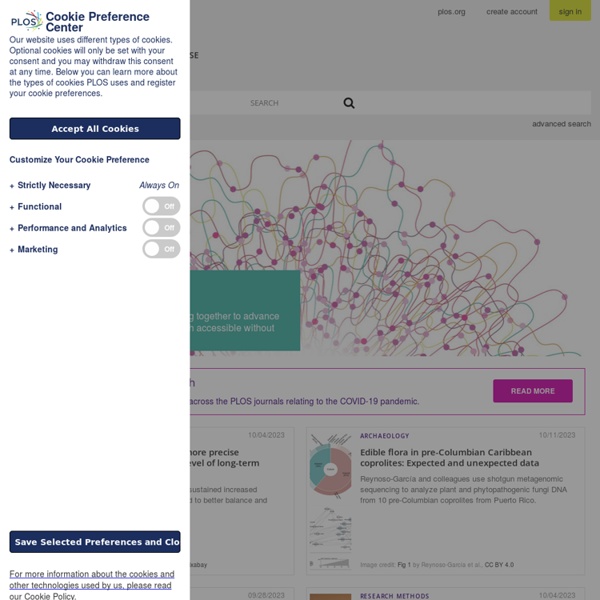



https://journals.plos.org/plosone/
Related: Week 11: Academic Search / Social Scholarship • Recherches scientifiques médicales • AP Research*BASE - Bielefeld Academic Search Engine BASE is one of the world's most voluminous search engines especially for academic web resources. BASE provides more than 200 million documents from more than 8,000 content providers. You can access the full texts of about 60% of the indexed documents for free (Open Access). BASE is operated by Bielefeld University Library. We are indexing the metadata of all kinds of academically relevant resources – journals, institutional repositories, digital collections etc. – which provide an OAI interface and use OAI-PMH for providing their contents (see our Golden Rules for Repository Managers). The index is continuously enhanced by integrating further sources / content provider (you can suggest to add a content provider which is not indexed yet).
The Best Online Resources For Teaching The Difference Between Correlation & Causation The difference between correlation and causation is an important concept in IB Theory of Knowledge, and I thought readers might find it useful to see some simple fun ways I use to teach the concept. I’ve used the first two, and the last one — a video — is one I just learned about . I haven’t decided if it’s helpful or just weird, though. Let me know what you think… Here’s a great comic from xkcd:
*Google Scholar: Library Partner or Database Competitor? By Nancy K. Herther Information professionals rely on vetted sources of information in order to provide the best quality service to their clients—whether they are students, researchers, or businesses. The internet has profoundly transformed our communication expectations, access to information, product evaluation, and buying behaviors.
6. The Methodology I. Groups of Research Methods There are two main groups of research methods in the social sciences: The empirical-analytical group approaches the study of social sciences in a similar manner that researchers study the natural sciences. This type of research focuses on objective knowledge, research questions that can be answered yes or no, and operational definitions of variables to be measured. The empirical-analytical group employs deductive reasoning that uses existing theory as a foundation for formulating hypotheses that need to be tested.
Rutgers University Begins Implementation of ORCID iDs Today, Rutgers University begins a formal universitywide implementation of Open Researcher & Contributor IDs (ORCID iDs). An ORCID iD is a persistent digital numeric identifier that distinguishes a researcher from every other researcher. It remains constant through changes in name or institutional affiliation, ensuring that a person’s work is properly attributed and recognized throughout their career. To date, nearly 4 million ORCID iDs have been issued to researchers around the world, including hundreds of affiliates at Rutgers. How to design effective data visualisations – EmpathyBroker The value of data and data visualisations Whether you’re writing an email, checking your tweets, streaming some music, or Googling life’s most important questions, such as “Can dogs see colours?”, these routine online actions generate large amounts of data. Usually, without us even being aware of it.
Nature vs. Science, pt. 2 The PHD Store - is back online! Need a gift for the holidays? Why not a book, mug or shirt that matches their level of procrastination sophistication? A Message from Jorge - hi! Data Collection Methods - Statistics How To Design of Experiments > Data Collection Methods Data Collection Methods: General Categories Data collection methods fall into four general categories: A census is a survey of a whole population. For example, the U.S.